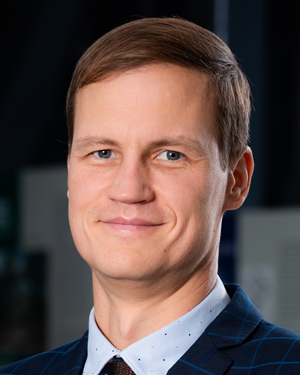Avaliku sektori innovatsiooni uurimisrühm
Public Sector Innovation research group

Prof. Veiko Lember
Tallinn University of Technology,
School of Business and Governance,
Ragnar Nurkse Department of Innovation and Governance
Introduction
The Public Sector Innovation (PSI) research stream brings together various researchers from TalTech’s Ragnar Nurkse Department of Innovation and Governance. Led by Veiko Lember, the team includes Vasilis Kostakis, Peeter Vihma, Chris Giotitsas, Johanna Vallistu, Karin Kruup, Kaire Holts, Jinxiao Luo, and Jan-Erik Tamm.
Our research uniquely focuses on and combines the theory and practice of:
- public governance (e.g. citizen engagement and co-production; public-private partnerships);
- public sector innovation (e.g. innovation labs; policy operations rooms; digital transformation; experimental policy implementation);
- technology governance (e.g. governance of ‘twin transitions’)
- innovation policy (e.g. demand-side policies such as public procurement of innovation)
- commons (e.g. energy cooperatives; digital commons)
Key Highlights
- Our members have recently led several large-scale research projects such as PADST and COSMOLOCALISM, which address head on the questions of sustainability governance.
- We have initiated several local innovation projects such as KOPLI 93 and LIFE COMET, which aim at exploring and institutionalizing more sustainable ways of living and energy production.
- We have been part of several recent main pan-European research consortia on public administration and public sector innovation (COCOPS, LIPSE, TROPICO, RADAR).
- Our members have served in the steering group of the European Group of Public Administration (EGPA), the largest regional academic network of the International Institute of Administrative Sciences (IIAS)), where they also co-chair a permanent study group on Public Administration, Technology and Innovation (PATI).
- Our key people are affiliated with various globally leading research centres and networks such as Autonomous University of Barcelona, Harvard University, Helsinki University; KU Leuven, and the UK RSA (Royal Society of Arts, Manufactures and Commerce).
Key Research Themes in the Project
Renovation wave is one of the niche level activities of the socio-technical transitions of built environment and energy that needs to be protected, supported, diffused, monitored and constantly (re-)evaluated to succeed. The eventual aim of the renovation wave is to reduce carbon emissions to a sustainable level. This transition brings several governance challenges that revolve around three broad dimensions:
- actors (national and local governments; construction, energy, intermediary etc firms; and residents, housing associations and other societal stakeholders),
- technologies (construction, energy, digital etc) and,
- institutions (building regulations, social norms, housing practices etc).
These dimensions all interact and produce relatively stable and path-dependent housing energy regimes and achieving radical transition towards energy-efficient housing assumes changing this regime.
This change cannot happen without conducive governance structures. Renovation wave is a socio-technical transition, where markets, governments and people are all part of the systemic shift and whose interests and values often conflict. Public sector is one governance actor among other societal stakeholders, although often primus inter pares. To facilitate the renovation wave, the public sector needs to take on new roles, pursue new tasks and develop new capabilities.
Our focus is on the governance of this transition and what is the role and tasks of the public sector in facilitating the radical shift towards energy-efficient housing. We are especially interested in the meso-level analysis of which governance structures might best work for radically increasing the energy efficiency in housing, and related strategic and administrative capabilities of the public sector. That is, how governments ‘get things done’ in the renovation wave.
By combining various research strategies (e.g. systematic literature reviews; process mapping; case-studies; co-creation and action research), we aim at, inter alia, addressing the following broad research questions:
- What can be done? Analysing the renovation wave from a transition and technology governance theory perspectives, e.g., how can housing energy transition be framed and problematized?; what are the different emerging socio-technical pathways and how to understand their socio-political implications?; what are the options available to accelerate and direct the transition while minimizing state coercion, reinforcing self-organization and legitimizing state action in the renovation wave?; how to achieve just transition?; what are the roles and tasks of the public sector and other actors in the renovation wave?
- What has been done? Empirically informed (historic) mapping of deep renovation governance models in different geographical, socio-economic and administrative settings, e.g., what are the working strategies of the public sector actors for shaping the markets and technological change for sustainable housing and renovation?; what are the strategies for empowering people (inhabitants) and overcoming conflicts in the renovation wave?; what (dynamic) capabilities the state actors deploy to mobilize internal and external resources to enable the renovation wave?
- What ought to be done? Co-creating normative suggestions in cooperation with renovation wave actors for new context-specific policy interventions and coordination innovations along with developing the corresponding capacity of state and local governments. By developing a better understanding of the values and motivations of actors, and the consequent normative requirements for addressing these values, this allows deducting roles and tasks of public sector and other actors.
